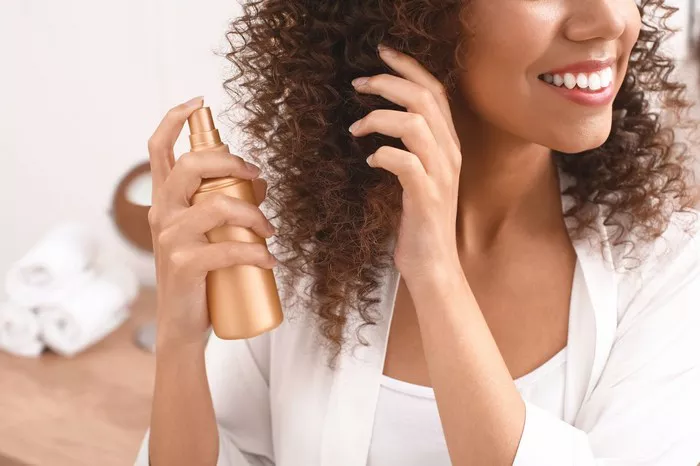Deep conditioning is a staple in many hair care routines, promising nourishment, hydration, and improved hair health. However, some individuals experience the unexpected outcome of dryness after deep conditioning, leaving them puzzled and frustrated. In this comprehensive article, we explore the possible reasons why hair may feel dry after deep conditioning and unveil effective solutions to restore moisture and vitality to your locks.
1. What is Deep Care
Deep conditioning is a popular hair care practice that involves using a rich, intensive conditioner to penetrate the hair shaft, providing enhanced moisture and nourishment. This treatment is particularly beneficial for those with dry, damaged, or chemically treated hair.
2. Possible Reasons for Post-Deep Conditioning Dryness
Several factors could contribute to the sensation of dryness after deep conditioning:
2.1. Protein Overload
Overusing protein-based deep conditioners or applying them when the hair does not require extra protein can lead to dryness. Too much protein can cause hair to become stiff and brittle.
2.2. Inadequate Moisturization
While deep conditioning aims to deliver moisture to the hair, the formulation of the conditioner and the individual’s hair type may affect its effectiveness in providing adequate hydration.
2.3. Residue Buildup
Product residue left on the hair after deep conditioning can create a barrier that prevents moisture from penetrating the hair shaft, leaving the hair feeling dry.
2.4. Application Technique
The way deep conditioner is applied can impact its efficacy. Failure to distribute the product evenly or concentrating it on certain areas may result in uneven moisture distribution.
2.5. Hair Porosity
Individuals with high hair porosity may find that their hair absorbs moisture quickly but also loses it rapidly, leading to a sensation of dryness.
2.6. Product Ingredients
Some deep conditioners may contain ingredients that do not effectively retain moisture, potentially contributing to dryness.
2.7. Underlying Hair Issues
Dryness after deep conditioning could be a symptom of underlying hair issues, such as damaged hair cuticles or scalp conditions affecting hair health.
3. How to Hydrate Your Hair
Hydrating your hair is essential for maintaining its health, shine, and manageability. Here are some effective tips to keep your locks hydrated:
3.1. Use a Moisturizing Shampoo:
Opt for a shampoo specifically designed to hydrate and nourish the hair. Look for products with ingredients like glycerin, aloe vera, or coconut oil.
3.2. Condition Regularly:
Apply a deep conditioner or hair mask once or twice a week to provide intense hydration. Leave it on for the recommended time to allow the product to penetrate the hair shaft.
3.3. Avoid Hot Water:
Wash your hair with lukewarm or cool water to prevent stripping away natural oils that keep the hair hydrated.
3.4. Limit Heat Styling:
Excessive heat styling can lead to dryness. Minimize the use of hot tools and always apply a heat protectant before styling.
3.5.Seal in Moisture:
After washing, apply a leave-in conditioner or hair oil to seal in moisture and keep the hair hydrated throughout the day.
3.6.Protect Your Hair:
Use hats or scarves to shield your hair from harsh weather conditions like sun, wind, and cold.
3.7.Stay Hydrated:
Drinking enough water also contributes to hair hydration from within.
By following these tips and incorporating a consistent hair care routine, you can achieve and maintain well-hydrated, healthy, and vibrant locks.
4. Solutions to Combat Post-Deep Conditioning Dryness
While experiencing dryness after deep conditioning can be disheartening, there are several effective strategies to replenish moisture and revitalize your hair:
4.1. Balance Protein and Moisture
Ensure a proper balance between protein and moisture in your hair care routine. If you have recently used a protein-based deep conditioner, follow up with a moisturizing treatment to restore the hair’s softness.
4.2. Choose the Right Deep Conditioner
Select a deep conditioner formulated for your hair type and specific concerns, whether it’s dryness, damage, or color-treated hair. Look for products that contain moisturizing ingredients like glycerin, shea butter, or natural oils.
4.3. Clarify Regularly
Regularly clarify your hair to remove product buildup and residues that may hinder moisture absorption.
4.4. Pre-Poo Before Deep Conditioning
Pre-pooing, which involves applying a conditioner or oil to the hair before shampooing, can create a protective barrier that helps retain moisture during deep conditioning.
4.5. Use Heat Wisely
Applying heat during deep conditioning can enhance product absorption, but excessive heat may cause moisture loss. Use heat moderately and follow manufacturer guidelines.
4.6. Customize Deep Conditioning Frequency
Adjust the frequency of deep conditioning based on your hair’s needs. Some individuals may benefit from more frequent deep conditioning, while others may find it effective on a less frequent basis.
4.7. Consider Hair Porosity
If you have high porosity hair, seal in moisture by using leave-in conditioners or styling products containing emollients and sealants.
5. Conclusion
In conclusion, experiencing dryness after deep conditioning can be attributed to various factors, including protein overload, inadequate moisturization, and residue buildup. By understanding these potential causes and adopting appropriate hair care practices, you can effectively combat post-deep conditioning dryness and restore your hair’s natural moisture and luster.
Remember that each individual’s hair is unique, and finding the right balance of products and techniques may require some experimentation. Be patient, embrace the journey of hair care exploration, and prioritize the health and well-being of your locks. With the right approach, you can unlock the secrets to replenished moisture and enjoy the beauty of well-nourished, hydrated, and vibrant hair.


